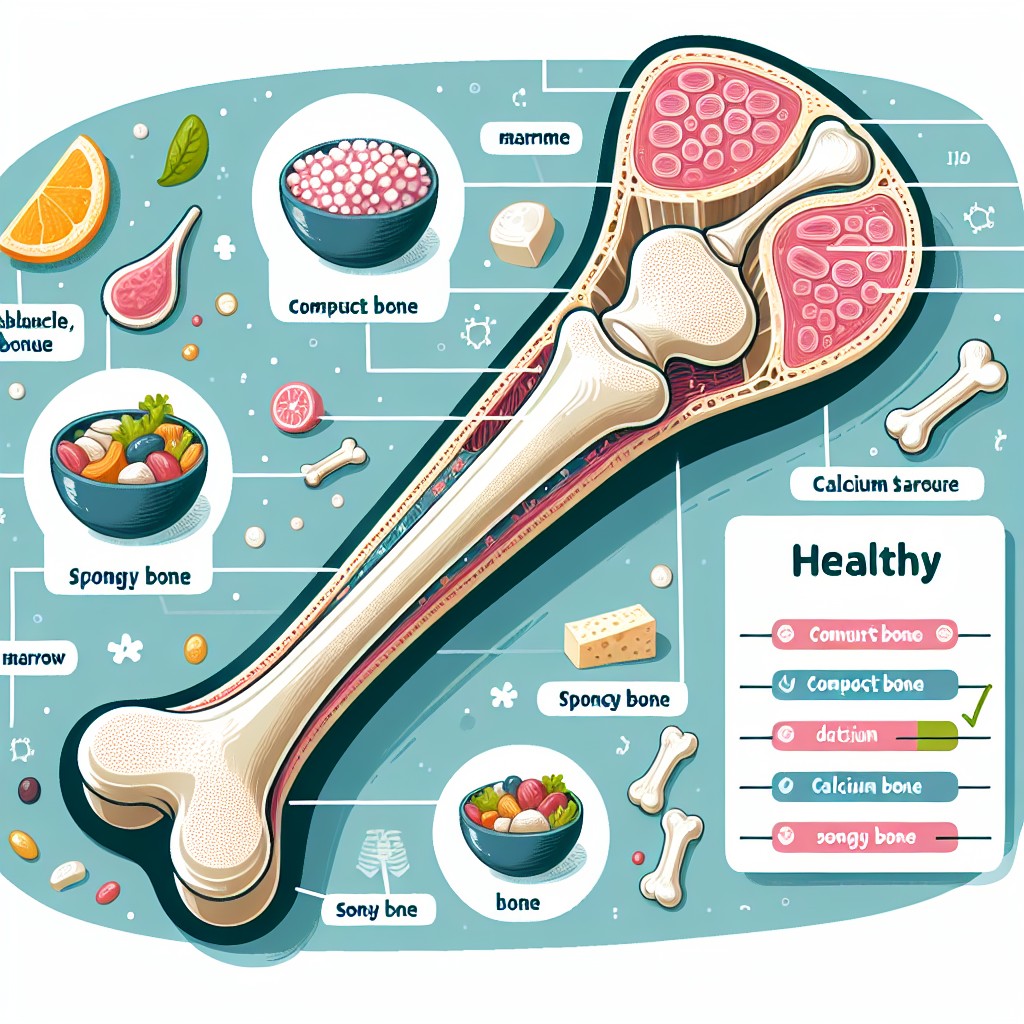Magnesium is an essential mineral that plays a crucial role in maintaining overall health and well-being. It is involved in over 300 biochemical reactions in the body, making it vital for various bodily functions. Magnesium is required for energy production, protein synthesis, muscle and nerve function, blood pressure regulation, and maintaining a healthy immune system.
Sources of magnesium include green leafy vegetables, nuts and seeds, whole grains, legumes, and seafood. However, many people do not consume enough magnesium through their diet alone. Factors such as poor soil quality, food processing, and certain medical conditions can also contribute to magnesium deficiency.
Summary
- Magnesium is an essential mineral for optimum health.
- Magnesium is important for strong bones and teeth.
- Magnesium can reduce the risk of heart disease.
- Magnesium can improve cognitive performance and mood.
- Magnesium can enhance muscle strength, endurance, and recovery.
The Importance of Magnesium for Strong Bones and Teeth
Magnesium is essential for maintaining strong bones and teeth. It works in conjunction with calcium to support bone health. In fact, about 60% of the body’s magnesium is stored in the bones. Magnesium helps regulate calcium levels in the body by activating vitamin D, which is necessary for calcium absorption.
Studies have shown that low magnesium levels are associated with decreased bone density and increased risk of osteoporosis. Inadequate magnesium intake can lead to an imbalance between calcium and magnesium levels in the body, which can weaken bones and increase the risk of fractures.
Magnesium and Cardiovascular Health: Reducing the Risk of Heart Disease
Magnesium plays a crucial role in maintaining cardiovascular health. It helps regulate blood pressure by relaxing the blood vessels and improving blood flow. Low magnesium levels have been associated with high blood pressure, which is a major risk factor for heart disease.
Research has also shown that magnesium may help reduce the risk of heart disease by improving lipid profiles. It can lower LDL cholesterol levels (bad cholesterol) and increase HDL cholesterol levels (good cholesterol). Additionally, magnesium has anti-inflammatory properties that can help reduce inflammation in the arteries and prevent the formation of plaque.
Magnesium and Brain Function: Improving Cognitive Performance and Mood
| Metric | Description |
|---|---|
| Magnesium intake | The amount of magnesium consumed through diet or supplements |
| Cognitive performance | The ability to process and retain information, solve problems and make decisions |
| Mood | An individual’s emotional state, including feelings of happiness, sadness, anxiety or calmness |
| Memory | The ability to store and retrieve information |
| Attention | The ability to focus and sustain attention on a task or stimulus |
| Depression | A mental health disorder characterized by persistent feelings of sadness, hopelessness and loss of interest in activities |
| Anxiety | A mental health disorder characterized by excessive worry, fear and nervousness |
Magnesium is essential for optimal brain function. It plays a crucial role in neurotransmitter release and synaptic plasticity, which are important for learning, memory, and cognitive performance. Magnesium also helps regulate the activity of the NMDA receptors, which are involved in synaptic plasticity and memory formation.
Studies have shown that magnesium supplementation can improve cognitive performance and enhance mood. It has been found to improve memory, attention, and overall cognitive function. Magnesium may also have a positive impact on mood disorders such as depression and anxiety.
Magnesium and Muscle Health: Enhancing Strength, Endurance, and Recovery
Magnesium is essential for muscle health and function. It plays a key role in muscle contraction and relaxation. Magnesium helps regulate calcium levels in the muscles, which is necessary for proper muscle function.
Research has shown that magnesium supplementation can enhance muscle strength and endurance. It can also help reduce muscle cramps and improve exercise performance. Additionally, magnesium may aid in muscle recovery by reducing inflammation and oxidative stress.
Magnesium and Digestive Health: Alleviating Constipation and IBS Symptoms

Magnesium plays a crucial role in digestive health. It helps regulate muscle contractions in the digestive tract, which is important for proper digestion and bowel movements. Magnesium can help alleviate constipation by softening the stool and promoting regular bowel movements.
Studies have shown that magnesium supplementation can be effective in relieving symptoms of irritable bowel syndrome (IBS). It can help reduce abdominal pain, bloating, and improve overall bowel function. However, it is important to consult with a healthcare professional before taking magnesium supplements for digestive issues.
Magnesium and Sleep Quality: Promoting Restful and Deep Sleep
Magnesium is known for its calming effects on the nervous system, making it beneficial for promoting restful and deep sleep. It helps regulate the production of melatonin, a hormone that controls sleep-wake cycles. Magnesium also helps relax the muscles and calm the mind, which can aid in falling asleep and staying asleep.
Research has shown that magnesium supplementation can improve sleep quality and reduce insomnia symptoms. It can help decrease the time it takes to fall asleep, increase total sleep time, and improve sleep efficiency. Magnesium may also help alleviate symptoms of restless leg syndrome, a condition that can disrupt sleep.
Magnesium and Stress Management: Reducing Anxiety and Depression Symptoms
Magnesium plays a crucial role in stress management and mental health. It helps regulate the release of stress hormones such as cortisol and adrenaline. Magnesium also acts as a natural relaxant, helping to calm the nervous system and reduce anxiety.
Studies have shown that magnesium supplementation can help reduce symptoms of anxiety and depression. It can improve mood, reduce stress levels, and promote a sense of relaxation. Magnesium may also have a positive impact on symptoms of post-traumatic stress disorder (PTSD) and other stress-related conditions.
Magnesium and Women’s Health: Relieving PMS and Menopause Symptoms
Magnesium is beneficial for women’s health, particularly during menstruation and menopause. It can help alleviate symptoms of premenstrual syndrome (PMS) such as mood swings, bloating, and breast tenderness. Magnesium’s calming effects on the nervous system can also help reduce menstrual cramps.
During menopause, magnesium can help alleviate symptoms such as hot flashes, night sweats, and mood swings. It can also support bone health during this stage of life when estrogen levels decline.
Magnesium and Diabetes Control: Regulating Blood Sugar Levels and Insulin Sensitivity
Magnesium plays a crucial role in diabetes control by regulating blood sugar levels and improving insulin sensitivity. It helps transport glucose into cells, where it can be used for energy. Magnesium also helps regulate insulin secretion and action.
Research has shown that magnesium supplementation can improve glycemic control in individuals with diabetes. It can help reduce fasting blood sugar levels, improve insulin sensitivity, and decrease the risk of developing type 2 diabetes.
Magnesium is an essential mineral that plays a crucial role in maintaining overall health and well-being. It is involved in various bodily functions, including bone health, cardiovascular health, brain function, muscle health, digestive health, sleep quality, stress management, women’s health, and diabetes control.
While magnesium can be obtained through diet, many people do not consume enough magnesium-rich foods. Supplementation may be necessary to ensure adequate magnesium levels. However, it is important to consult with a healthcare professional before taking magnesium supplements, as they may interact with certain medications or medical conditions.
Incorporating magnesium-rich foods into your diet is also recommended. Green leafy vegetables, nuts and seeds, whole grains, legumes, and seafood are excellent sources of magnesium. By prioritizing magnesium intake and maintaining optimal levels of this essential mineral, you can support your overall health and well-being.
FAQs
What is Magnesium (Mg)?
Magnesium (Mg) is a chemical element with the symbol Mg and atomic number 12. It is a shiny gray solid which is an alkaline earth metal.
What are the common uses of Magnesium (Mg)?
Magnesium (Mg) is commonly used in the production of alloys, as a component of pyrotechnics, and as a dietary supplement. It is also used in the manufacturing of electronics, such as laptops and mobile phones.
What are the health benefits of Magnesium (Mg)?
Magnesium (Mg) is an essential mineral that plays a crucial role in many bodily functions, including muscle and nerve function, blood sugar regulation, and bone health. It has been linked to a reduced risk of heart disease, type 2 diabetes, and migraine headaches.
What are the dietary sources of Magnesium (Mg)?
Magnesium (Mg) can be found in many foods, including leafy green vegetables, nuts, seeds, whole grains, and fish. It is also available in supplement form.
What are the symptoms of Magnesium (Mg) deficiency?
Symptoms of Magnesium (Mg) deficiency can include muscle cramps, tremors, fatigue, weakness, and loss of appetite. Severe deficiency can lead to more serious symptoms, such as seizures and abnormal heart rhythms.
What is the recommended daily intake of Magnesium (Mg)?
The recommended daily intake of Magnesium (Mg) varies depending on age and gender. For adult men, the recommended daily intake is 400-420 mg, while for adult women it is 310-320 mg. Pregnant and breastfeeding women may require higher amounts.



